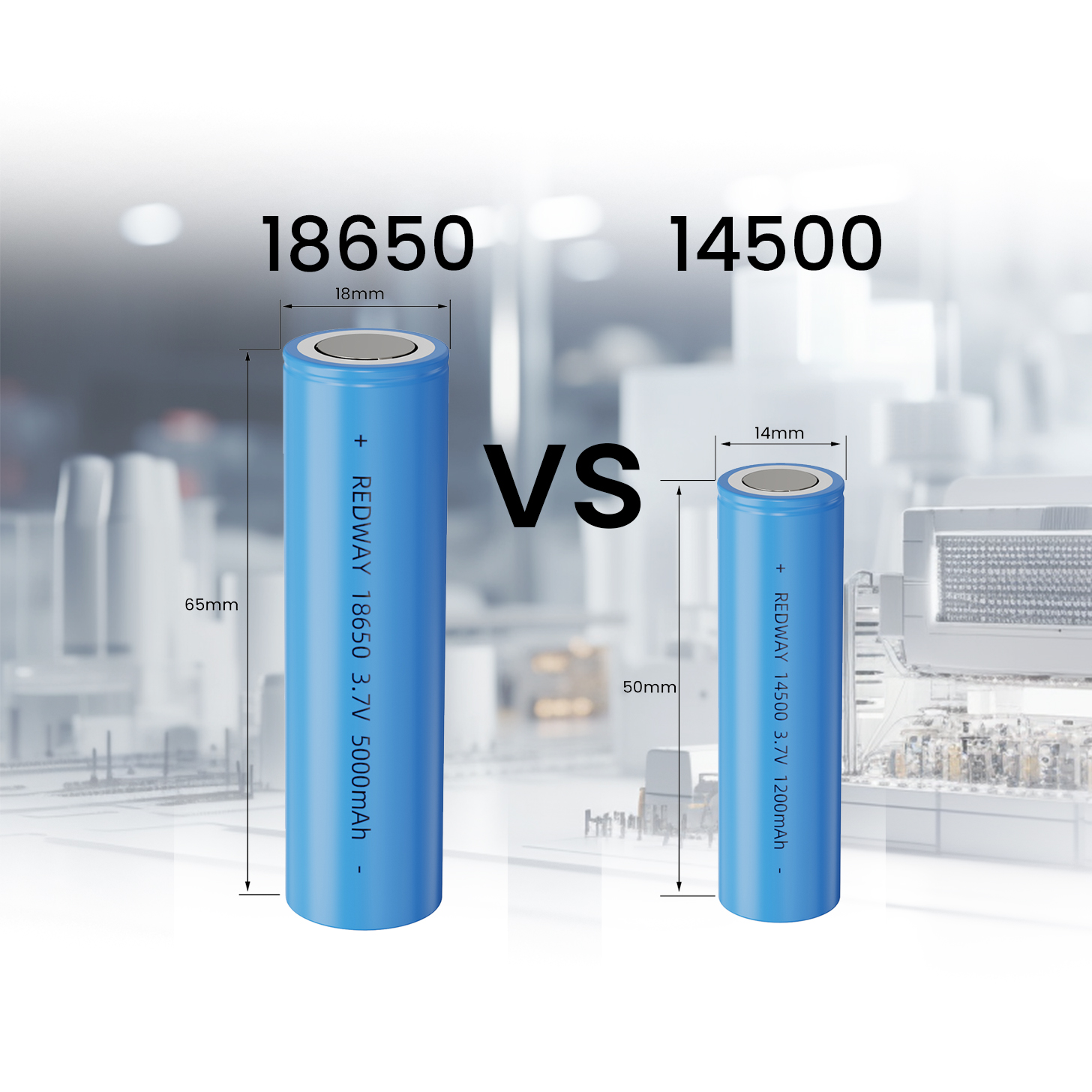Batteries are essential power sources for various electronic devices, and choosing the right type can significantly impact performance and longevity. Two common battery types in use today are the 18650 and 14500 batteries. While both serve similar purposes, they have distinct differences that make them suitable for specific applications.

Size and Dimensions
The primary difference between the 18650 vs 14500 Battery lies in their size and dimensions. The 18650 battery is larger and bulkier compared to the compact 14500 battery. The dimensions of the 18650 battery typically measure 18mm in diameter and 65mm in length, while the 14500 battery is smaller, with dimensions around 14mm in diameter and 50mm in length.
Capacity and Voltage
Another crucial factor to consider when comparing these batteries is their capacity and voltage. Generally, 18650 batteries have a higher capacity and voltage compared to 14500 batteries. This means that 18650 batteries can store more energy and deliver higher power output, making them ideal for high-drain applications.
Applications
Due to their size and power capabilities, 18650 batteries are commonly used in devices that require a significant amount of power over an extended period. These include laptops, electric vehicles, and high-powered flashlights. On the other hand, 14500 batteries are more suitable for compact devices such as flashlights, electronic toys, and portable electronics.
Power Output
18650 batteries typically offer higher power output compared to 14500 batteries, making them suitable for devices that require more power to operate efficiently. This difference in power output can affect the performance of devices, especially those with high energy demands.
Price and Availability
In terms of price and availability, 18650 batteries are generally more readily available and cost-effective compared to 14500 batteries. This is due to the higher demand for 18650 batteries and their widespread use in various industries.
Charging Methods
Both 18650 and 14500 batteries can be charged using similar methods, including standard chargers and USB charging cables. However, some devices may require specific charging adapters or accessories to accommodate different battery sizes.
Lifespan and Durability
When it comes to lifespan and durability, 18650 batteries tend to have a longer lifespan and greater durability compared to 14500 batteries. This is due to their larger size and construction, which allows them to withstand more charge-discharge cycles without significant degradation.
Safety Features
Both 18650 and 14500 batteries come with built-in safety features to prevent overcharging, short circuits, and overheating. However, it's essential to handle these batteries with care and follow proper charging and usage guidelines to avoid accidents or damage to the batteries and devices.
Environmental Impact
Considering the environmental impact is crucial when choosing between 18650 and 14500 batteries. While both types contain materials that can be recycled, proper disposal and recycling practices are essential to minimize environmental pollution and conserve resources.
User Preferences
User preferences play a significant role in determining which battery type is suitable for specific applications. Factors such as size, weight, capacity, and price influence users' decisions when selecting batteries for their devices.
Future Trends
As battery technology continues to evolve, we can expect to see advancements in both 18650 and 14500 batteries. These may include improvements in energy density, charging efficiency, and safety features, making them even more versatile and reliable for various applications.
Conclusion
In conclusion, both 18650 and 14500 batteries have their advantages and limitations, making them suitable for different applications. Understanding the differences in size, capacity, power output, and other factors can help users make informed decisions when choosing batteries for their devices.
FAQs
Which battery is better, 18650 or 14500?
The answer depends on the specific requirements of your device. If you need higher capacity and power output, the 18650 battery may be more suitable. However, if you prioritize compact size and portability, the 14500 battery could be a better choice.
Are 18650 batteries compatible with devices that use 14500 batteries?
Generally, no. Devices designed for 14500 batteries may not accommodate the larger size of 18650 batteries. It's essential to use batteries that are compatible with your device's specifications.
Can I use 18650 batteries in place of AA batteries?
While some devices may accept 18650 batteries with the use of adapters, it's not recommended to substitute them for AA batteries without proper compatibility and voltage considerations.
How long do 18650 and 14500 batteries last?
The lifespan of both types of batteries depends on various factors, including usage patterns, charging practices, and environmental conditions. Generally, 18650 batteries tend to have a longer lifespan due to their larger size and capacity.
Are there any safety risks associated with using 18650 and 14500 batteries?
Like any other battery, improper handling, charging, or usage of 18650 and 14500 batteries can pose safety risks such as overheating, leakage, or explosion. It's essential to follow manufacturer guidelines and safety precautions when using these batteries.